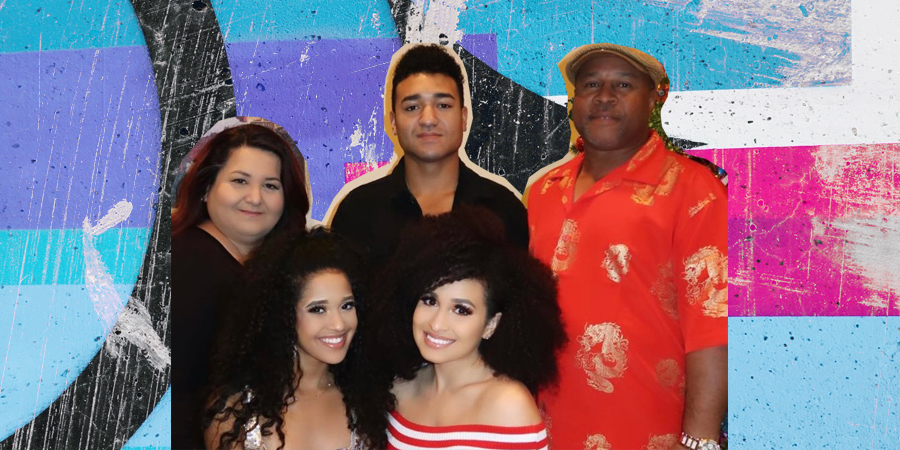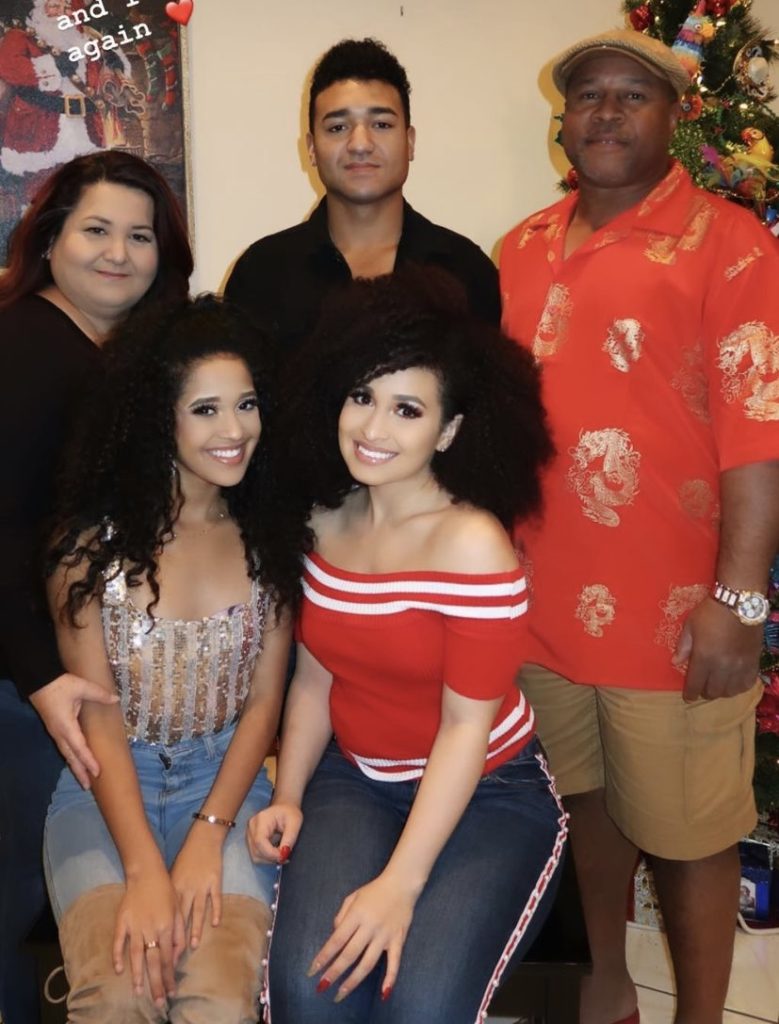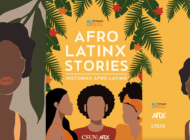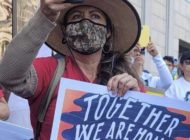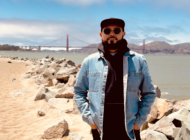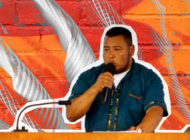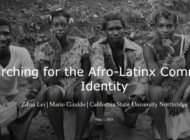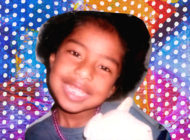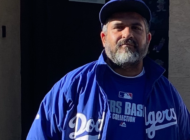In this episode, Elizabeth Campos talks to Jordan Henry, a Cal-State Northridge undergrad, a micro influencer, aspiring journalist, and more. She attributes a lot of her goals to her experience as a mixed-race woman. In developing her cultural identity Jordan became “her most authentic self,” but it wasn’t easy. Her family, travel, and education have all played a part.
By ELIZABETH CAMPOS
EL NUEVO SOL
Elizabeth Campos: Welcome to Radio Nepantla, a podcast by El Nuevo Sol, the multimedia site for the Spanish-language journalism program at California State University, Northridge. My name is Elizabeth Campos. The title of this series is Afro-Latinx. We want to tell diverse stories of Afro-Latinx, Black-Latinx, and Afro-Latin American identity.According to the Pew Hispanic Center, one out of every four Latinos in the nation identify as Afro-Latinx. This is the same proportion of Afro-Latin Americans in that region. We decided to use the term Afro-Latinx—with X—to be inclusive of non-binary people. The umbrella term “Black-Latinx” refers to biracial people with one African-American and one Latinx parent. The umbrella term “Afro-Latin American” refers to people of African ancestry in Latin America.
In this episode, I interviewed 24-year-old Jordan Henry. Jordan is an aspiring journalist, finishing up her undergraduate studies at CSUN. She’s worked with Studio 1 and is a micro influencer on Instagram among other things.
She grew up about fifteen minutes from the U.S. Mexico border in McAllen, Texas. Her mom is Mexican and grew up with a single mom after her dad died, it was a low-class upbringing. Her dad is Black and had a sliver spoon life in Tyler, Texas, an area Jordan said is better off. Jordan grew up knowing her parents were different and identifies as mixed-race now. But she didn’t always.
Jordan Henry: I was very confused growing up… like what my ethnicity was or which one to identify as. Because growing up my mom was like, “well you have to identify as Black because the guy is more dominant—it’s supposed to go by what your husband is.” And also, where I’m from my mom was like, “you’re a minority you get more opportunities.” So, I just identified as Black, but it was also very confusing because people would look at me and say, “you’re very light-complected so how are you (Black)?” And a lot of questions always came up when I was a little girl.
Elizabeth Campos: At home Jordan noticed the difference between her extended families in some of the most day-to-day things. Food was a huge indicator of cultural differences followed by music.
Jordan Henry: I would have to say the music because you have my dad listening to like hip-hop music and then you have mom who just listens to like fully Latin music. And it’s like okay… which one do I pick here? You kinda have to pick whichever one you want. And so that was definitely the main difference. And I would also have to say the language, because my mom like… I lived with my grandma at the time and she spoke full Spanish. So I had to kinda learn the language. And kinda learn to speak it. At the time I wasn’t a very native speaker and I (still speak) very conversational Spanish. It’s one of those things were I don’t know it fully. I had to kinda learn when I was younger, especially in that area—if you do not know Spanish, they will eat you alive.
Elizabeth Campos: Jordan interacted more with her Mexican extended family then her Black family, mostly because of where her families lived. For the most part inside her home, she felt comfortable. Jordan’s parents let her do what she wanted with her appearance, within reason. Because they wanted her to feel happy and confident however she interpreted that. But her classmates and school experiences weren’t as forgiving.
Jordan Henry: I actually had a really bad experience with school for many years growing up. I was actually the only mixed girl in my whole entire school at every single school I went to… until I was about… no—every single school, up until high school. I was the only one. And it was just very tough. Because when I was younger, I was teased often, and it was very confusing to me because I had big curly hair. My hair is wet right now so you can’t see the bigness, it’s bigger than this. But I had to move schools because people would tease me. I always felt alone, it was the… I wouldn’t wish that on my worst enemy. It’s one of those things where you just feel so alone, and no one understands you.
Elizabeth Campos: After years of straightening her hair, five years ago Jordan decided to go natural. For anyone listening who doesn’t know what that means—wearing your natural hair is about more than a style. It’s a choice to embrace a part of you that has been stigmatized in the United States and Latin America to mean unkept, non-professional, and even ugly. In California, a law exists protecting people in the workplace from being discriminated against—for wearing natural hair. It’s called the Crown Act and it exists because discrimination in the professional world surrounding hair is a huge deal. Jordan is an aspiring journalist and she recognized how important something like her hair is. She calls it her crown and shared how long it took her to love it. Traveling was one of the things that really helped Jordan love all of herself.
Jordan Henry: It took me a long time. It took me to move to California to really find myself. I was very confused. Because like I said, in my community there’s really no mixed people. So, it’s one of those things where I had no one to talk to; no one understood me. And now that I’m older I have friends that kinda understand me. That’s the nice thing about living in a state like California. It’s that there’s so many people that are so many different ethnicities. And people get scared to move. Like I moved here alone at 18. I think my advice is just move. Have those experiences. Learn things about the world, those cultures, ethnicities, religions, everything. That’s my main take away from everything. Just to learn. And that’s what I’m striving for myself every day, just to learn as much as I can about different cultures.
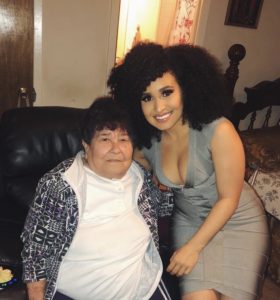 Elizabeth Campos: Edlin Veras, co-author of “Out of the Shadows, into the Dark: Ethnoracial Dissonance and Identity Formation among Afro-Latinxs” shared a similar experience. His family is from La Republica Dominicana, they immigrated to New York, he briefly lived in New Hampshire then in Miami. As a young adult he moved to Atlanta Georgia for college and that sparked the paper he co-authored with Elizabeth Hordge-Freeman.
Elizabeth Campos: Edlin Veras, co-author of “Out of the Shadows, into the Dark: Ethnoracial Dissonance and Identity Formation among Afro-Latinxs” shared a similar experience. His family is from La Republica Dominicana, they immigrated to New York, he briefly lived in New Hampshire then in Miami. As a young adult he moved to Atlanta Georgia for college and that sparked the paper he co-authored with Elizabeth Hordge-Freeman.
Edlin Veras: Moving from the northeast to the south, deep south Miami to the deep South in a different sense, to Atlanta, Georgia.
I noticed how my racialization in those spaces was different. Given the social context I was in. Now I’m at the University of South Florida in Tampa which has a very interesting history with the Caribbean as well. When we consider (the) large Cuban populations that came through cigar companies and factories. And then a large Afro-Cuban population who segregated, lived with African-Americans and other Black ethnic groups who by law were kinda relegated to these spaces.
That’s kinda what gave birth to this paper. Conversations between my mentor and I about these different racial dynamics. And clearly like prof said we have, we know that Afro-Latinos or Black Latinos, Black Latin Americans have existed forever, right? And had an impact all around the world—and in the United States in particular, for a very long time. So, we went out to investigate, what is it that these people—what is it that this particular group is experiencing? And how can we understand their identity formation given different social historic context. Given different nationalities, countries of origin so on and so forth.
Elizabeth Campos: A person’s intersectionality is all the pieces and experiences that make up who they are—their privilege, and their struggles. A lot of who Edlin and Jordan are and what they aspire to do has to do with their cultural identity, and everything they’ve experienced because of it.
Jordan shared that when she was pursuing acting she was being typecast and, once again, feelings of not being enough for one culture or the other arose.
This wasn’t the first time I heard something along the lines of, “when you’re mixed, people watch you and they catch stuff.” Rebecca Romo, of the Department of Sociology at University of California, Santa Barbara called it cultural policing. She referred to this policing as people knit picking parts of someone’s identity to try and place them in what they believe to be stereotypical of one race or ethnicity.
The sad part is this policing is done mostly by people belonging to the backgrounds they police. For example, your tia might say, “mija es que las Mexicans no se visten así. Eso es de las negras.” And although the comment isn’t mal intended this creates the idea that you are more of something and not enough of another because of speech, clothing, skin color, music taste, and things that are out of your control like your phenotype. Instead of uplifting mixed identities it demands people choose one of the parts that make them whole.
In Jordan’s case the policing hasn’t stopped, but she learned something vital to how she carries herself now—others opinions of her don’t matter.
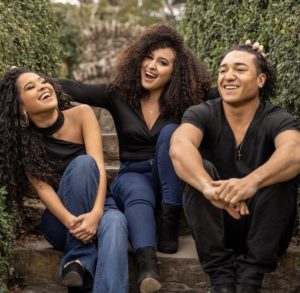 Jordan Henry: I’ve gotten called countless things. Like, “oh you don’t act like a Black person.” My response is, “how does a Black person act? How do you act Black though?” How do you do that?” And then a lot of the times I get—because sometimes my accent will come out when I say certain words, and a lot of times people will be like, “oh, I hear your little Mexican accent there.” And it’s like… “okay?” It’s like a lot of the time people find it so interesting when in reality it’s just a normal thing. Like sometimes people are like, “oh, it’s so exotic,” and it’s like “no.” I’m just a regular person.
Jordan Henry: I’ve gotten called countless things. Like, “oh you don’t act like a Black person.” My response is, “how does a Black person act? How do you act Black though?” How do you do that?” And then a lot of the times I get—because sometimes my accent will come out when I say certain words, and a lot of times people will be like, “oh, I hear your little Mexican accent there.” And it’s like… “okay?” It’s like a lot of the time people find it so interesting when in reality it’s just a normal thing. Like sometimes people are like, “oh, it’s so exotic,” and it’s like “no.” I’m just a regular person.
Elizabeth Campos: Jordan said it wasn’t easy but after years of personal growth she can now be her most authentic self without worry about being enough for anyone else.
Jordan Henry: So, I definitely want to represent both communities. Being a mixed women it’s like I—I always tell people I’m mixed of two different races that are the most oppressed in America. And so, what better than to use that to my advantage. As well as, you know, trying to help out my community. And also report on that because there’s a lot of good things that are happening within both communities. And a lot of the time what you see in the media—our communities are not painted in the best light. So, I want to be able to show our communities in the best light. A lot of the reporting I do always has to be on people of color. My emphasis is mostly on people of color, and also social media and tech. That’s kind what my main focus is on.
Elizabeth Campos: Jordan, has taken everything she experienced as a reason to do better and ask others to do the same. Despite her cultural identity being treated as something too confusing to be proud of in her early life, there’s only one thing she’d change about her upbringing.
Jordan Henry: Honestly, my mom… she did not know how to do my hair at all… because my mom is, you know, Hispanic. She didn’t know how to do my hair period. If I would change something about my upbringing it would be that. I wish she knew how to do more styles with my hair because it was just painful.
Elizabeth Campos: I’d like to thank Jordan one more time for sharing a piece of herself with us, it means the world. To see more of her work follow her on Instagram at missjordanhenry. And to everyone else…
Thanks for listening to Radio Nepantla—La Voz que Traspasa Fronteras. We invite you to listen to the rest of the series Afrolatinx … We will tell you stories of Afro-Latinx identity. Listen to our podcast on your favorite platform. You can also check our SoundCloud channel—ElNuevoSol—or our website: ElNuevoSol dot net.
This was a production of El Nuevo Sol—the multimedia project of the Spanish-Language Journalism program at Cal State University, Northridge.
This episode was produced and edited by: Elizabeth Campos.
Voice (or voices): Elizabeth Campos and guest Jordan Henry
Music by the Afro-Colombian group Kombilesa Mi.
See you next time.
Tags: #AFLX Afrolatinx Elizabeth Campos Jordan Henry learning by travel mixed race podcast Radio Nepantla women in journalism






